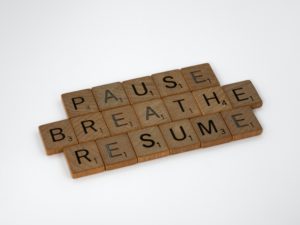Do’s and Don’ts of Resume Writing – For everyone seeking a job, a well-written and powerful resume is essential. This is because it serves as an important marketing tool for applicants, allowing them to demonstrate their abilities and expertise. Meanwhile, with so many internet tools accessible, it has never been easier for an applicant to create an appealing CV. However, there are several resume writing suggestions that one should never overlook.
As a result, the reader will find various do’s and don’ts advice in this article to help them improve their resume.
Do’s and Don’ts of Resume Writing –
Do’s
Use bullet points in resume writing:
When it is to formatting the resume, using bullet points to outline accomplishments can surely increase the chance of cracking the job interview. And this is because it is much easier to read and skim, which most hiring staff do. Bullet points create attention to highlight important information. They are also visually pleasing, making the information more accessible to the reader. So, keep the resume information short and meaningful. Some people use a short paragraph to explain their roles and duties, followed by a bullet point to show their achievements. This is quite okay; just make sure that the paragraph is concise to prevent redundancy.
Make a powerful goal statement:
A simple objective statement may go a long way. First and foremost, it informs the reader about the job position applicant is applying for. When submitting a CV to an HR professional recruiting for different job positions, this may significantly impact. Not only that, but an excellent goal statement will provide a quick summary of the qualifications. Moreover, this will allow the hiring manager to decide whether or not to continue reading.
Choose the correct format for resume writing:
While writing a resume, one thing to keep in mind is that there is no one-size-fits-all approach to formatting. And this is because what works for one person may not work for another. Say, for example, if a functional resume works for some people, it may not be appropriate for someone who frequently changes their career. This necessitates a thorough understanding of the various resumes and their respective advantages. Then, decide which style is ideal based on the research.
Focus on your aim:
An unfocused saying on a resume indicates that the candidate is hesitant and unfocused about the career. And the recruiting manager prefers not to deal with such candidates. On the other side, they want to see individuals with professional ambitions aligned with their company’s demands. So, keep in mind that a tailored CV is always preferable for specific job openings than an irrelevant resume.
Don’ts
Don’t represent the lie:
An applicant must never tell a lie on their resume because it is never good to start a professional relationship based on false facts. Similarly, as a candidate, the employer hopes that he is not lying about promised salary, employees benefits, etc. They also accept that candidate is telling the truth about their background and skill set.
Using argot or slang words:
A candidate needs to be professional in their resume if they want to crack the coming opportunity. For this reason, an applicant should avoid using jargon, slang, and lingo in their resume. However, using the industry specification terminologies is one exception. This can help the applicant lend the credit that he is a knowledgeable person and an expert in the field, but be cautious before mentioning such terms in the resume.
Including Photo in the resume:
Unless the job is about modelling, or the job requirement is for good attributes, it is always advisable to never put the resume picture. For the hiring managers, skills are on top priority. They don’t consider how the applicant looks. Hence, keep the resume formatting simple and let the recruiter read the skills and qualifications. In addition, appearance doesn’t value as a selling point for the candidate as a competitive job candidate in the business world.
Adding irrelevant information:
It is critical not to include unnecessary material on the CV. For example, if the individual was previously a cook but is now looking for a new position, mentioning the old experience may create clutter in the resume. As a result, the candidate must think about the resume as the hiring manager does. How well does the interviewee’s CV match the employer’s requirements? And everything else is unimportant.
Conclusion
So, there you have it, everything about dos and don’ts about writing the resume. Hopefully, readers get the information they are looking for. And for any tips or queries, please make sure to comment in the section below.


